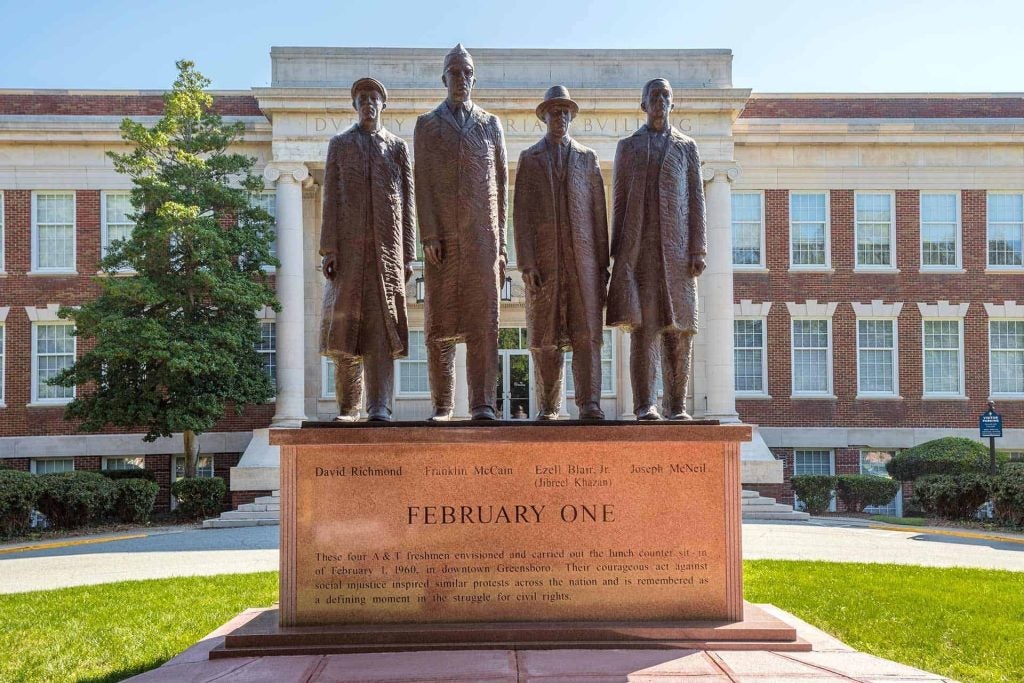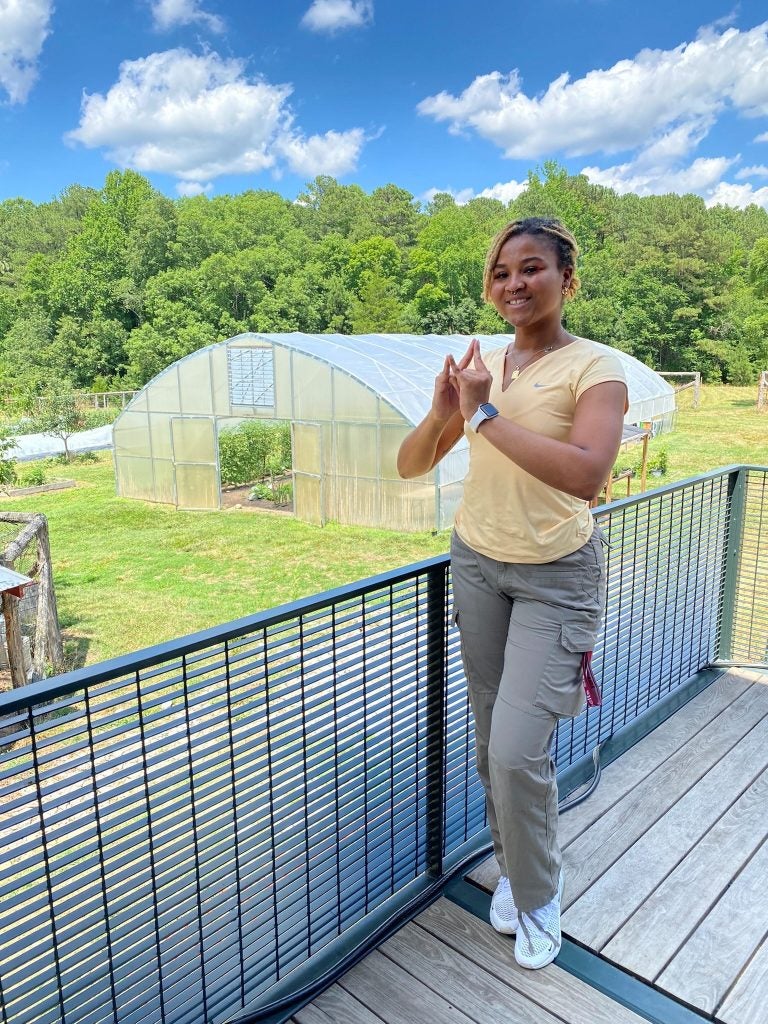By Arianna Mackey, Environmental Defense Fund (EDF) Summer 2022 Intern
I became aware of my community’s lack of environmental awareness at a very young age. Growing up in the Hampton Roads area of Virginia, my family and I visited the Nauticus museum often. One afternoon, after spending time in the flooding exhibit, I explained to my mom that due to increased flooding, Virginia Beach would be inhabitable in the future, with standing water reaching the front door following a storm. She brushed me off by saying it was an “over-exaggeration” and our community was fine. That encounter piqued my interest in environmentalism.
Growing up, I’ve seen many in my community face a myriad of social issues, including lack of housing, food and job insecurity, poverty, culture loss, and mental trauma, among many others.
At my college, North Carolina Agricultural and Technical State University (NCA&T), a Historically Black College or University (HBCU), my degree program/section mainly focused on learning about ongoing social issues such as voting rights disputes, food disparities and job insecurity. However, I wished we could have also explored environmental issues further and examined how they were interconnected to these other issues.
Climate change brings disproportionate impacts to Black communities.
Black communities have a significant amount at stake due to the growing climate crisis. Hurricanes, flooding, rising sea levels, drought, water and air pollution, hazardous waste dumping, and ocean acidification are all examples of the specific climate-related threats impacting communities of color. We have seen this disparity come to light through inadequate access to safe drinking water, as in Flint, Michigan. Additionally, new research indicates that some Black communities are expected to see the flood risk in their neighborhoods climb at least 20% over the next 30 years.
Other studies, like this one done by Green 2.0, even highlight that coastal communities of color are most at risk for accelerated flooding. Although we have the least capacity to respond to flooding disasters, we are asked to shoulder much of the burden. These issues severely impact my community, and with ongoing efforts such as the Justice40 initiative and EDF’s new partnership with the Gates Ventures and Open Educational Resources Project, now is the time for governments to rethink their approaches and recognize the importance of authentic, meaningful engagement that will usher more Black leaders into the environmental movement. As Heather Toney, VP of Community Engagement, once said, “climate change is a threat to Black life.”
How we can better empower the next generation of Black Climate Leaders.
After learning about these impacts on my community, I decided to begin building a career in environmental justice. Before taking an environmental science course at my university, I was convinced that I would be a civil rights attorney. However, following internships with the U.S. EPA and now EDF, I found that environmental justice is a priority issue that needs more people like me to address it.
Interconnectedness will help build equity. To correct injustice, NGOs and government organizations need to look at communities holistically: from the policies and historical barriers to the culture. From my experience, I have seen a huge opportunity to create space for Black engagement and leadership, particularly among peers of my age group and youth through education. For example, the “cAMpaign for climate change” is a program I plan to bring to my HBCU in collaboration with my sorority, Delta Sigma Theta, Sorority, Inc. This program will be a protest of sorts, inviting environmental advocates to speak to students about issues harming our community and encourage policies and candidates that promote change.

Campaign for Climate Change will be held at the A&T Four Statue on NC A&T’s campus on November 14th at 5:13pm. This protest will increase awareness of Environmental Racism in Eastern North Carolina with speakers from NC Black Alliance.
Going forward, I hope that more members of my community are inspired to get involved in the environmental justice movement, and that NGOs start to think more about how they can better support the next generation of black activists to carry on the work. The time is now to turn the tide.










